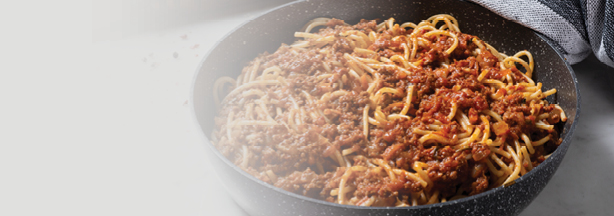Milk Alternatives for People with Chronic Kidney Disease
By DaVita dietitian Chien-Wei Kung, RD
“got milk?®” This phrase, developed by the California Milk Processor Board, became one of the most recognized slogans in advertising history. The campaign features numerous celebrities and cultural icons crediting milk for their strong bones and muscle health.
Yet people with chronic kidney disease (CKD) have to limit dairy products in their kidney diet. High levels of phosphorus, potassium and calcium in something like low-fat milk are not good for someone on a kidney diet.
But isn’t milk good for my bones?
Bones are mostly made of calcium and phosphorus. When kidneys function well, they are able to keep these two minerals in balance in the blood and bones. However, kidney disease causes this process to become dysfunctional:
- Excess phosphorus builds up in the blood.
- Kidneys no longer activate vitamin D, which affects the ability to absorb calcium from food eaten.
- Low blood calcium levels release cause calcium and phosphorus from the bones, weakening them over time.
- Increased phosphorus in the blood combines with calcium, causing calcifications elsewhere in the body and decreases the amount of blood calcium.
Despite milk’s calcium content, its high phosphorus content may actually weaken bones.
There is calcium in both hemodialysis and peritoneal dialysis (PD) solutions, so patients receive some of their daily calcium requirements with their dialysis treatments. Some phosphate binders also contain calcium. Therefore, it is unusual for a dialysis patient to get insufficient amounts of calcium.
Are there any alternatives to milk if I have kidney disease?
Yes. Soy milk, rice milk and almond milk can be found in most grocery stores, while other milk alternative products have also gained in popularity. However, some of these products do contain significant amounts of potassium and/or phosphorus, so it’s important to check labels. Do not assume a product is low in potassium or phosphorus because values are not listed on the label. For example, one brand of hemp milk contains 450 mg of phosphorus in one cup. This is almost half the recommended 1,000 mg phosphorus limit.
At one time nondairy creamers were included as a milk alternative choice. Unfortunately, the phosphate and potassium additives in many nondairy creamers has changed the recommendation to include in a kidney diet.
What should I consider in choosing a milk alternative?
Consider calcium, phosphorus, potassium and protein content when choosing a milk alternative. Your dietitian can help you determine which milk alternative is right for your diet. Unfortunately, only calcium and protein are usually listed on food labels. Potassium will be required in the future. The ingredient list often gives clues to help when selecting a milk alternative. Products with phosphate additives would not be the best choices. Many of these substitutes contain added calcium. Your dietitian can help guide you on the right product if you need to limit calcium.
Be aware that product formulas can change. One brand of soy milk that is low in phosphorus may be fortified with phosphorus the following year. Even within the same brands, different flavors can have varied amounts of phosphorus, calcium and potassium. It often helps to contact the company directly to get the most current nutritional information. Here are some milk alternatives that people with kidney disease may consider using in their diets:
Rice milk
- Rice Dream Rice Drink Original Classic
- Rice Dream Rice Drink Vanilla Classic
Soy milk
- Edensoy Light Vanilla Soy Milk
- Edensoy Light Original Soy Milk
- Pacific Select Soy Low Fat Plain
- Pacific Select Soy Low Fat Vanilla
- Soy Dream Classic Vanilla
Almond milk
- Almond Breeze, Unsweetened Original
- Almond Breeze, Unsweetened Vanilla
- Almond Breeze, Unsweetened Almond-Coconut
- Pacific Organic Almond Unsweetened Low Fat Original
- Pacific Organic Almond Unsweetened Low Fat Vanilla
- Pacific Organic Almond Original
- Pacific Organic Almond Vanilla
- Silk, Unsweetened Original
- Silk, Unsweetened Vanilla
What types of meals can I make with my milk alternatives?
Here are some yummy DaVita.com recipes to choose from:
Breakfast
Lunch
Dinner
Dessert
Beverages
Related kidney diet education articles on DaVita.com

Download
Cookbooks
Access free kidney-friendly cookbooks from DaVita dietitians.
1,000,000+ Enjoyed So Far!

Eating Out
Guides
See kidney-friendly food and drink choices to consider when eating out at your favorite restaurants. Choose from 12 cuisine types.
